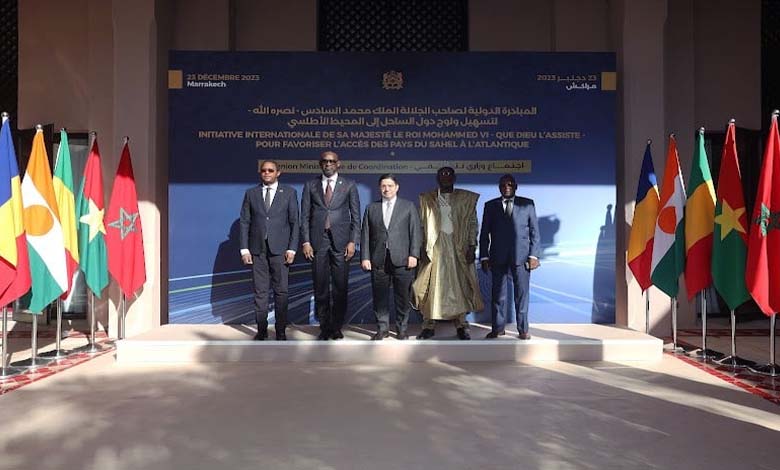African countries discuss the implementation of the royal initiative for access to the Atlantic in Marrakech
The initiative, announced in the speech by King Mohammed VI on the 48th anniversary of the Green March to promote development in Africa, involves Mali, Niger, Burkina Faso, and Chad

The international initiative, called for by the Moroccan King, aims to facilitate access for Sahel countries to the Atlantic Ocean. It is part of Rabat’s efforts to implement the King’s recommendations to support development in Africa and materialize the South-South cooperation based on a win-win partnership serving the interests of the continent’s people.
During the initiative announced in the speech on the 48th anniversary of the Green March, ministers from Sahel African countries agreed to establish a national working team in each country to prepare and propose ways to activate King Mohammed VI‘s international initiative. The ministers emphasized the strategic importance of the initiative, providing significant opportunities for economic transformation in the region, accelerating regional communication, trade flows, and shared prosperity in the Sahel region.
Moroccan Foreign Minister Nasser Bourita stated during the meeting that the launch of this initiative is linked to strengthening cooperation, addressing challenges faced by Sahel countries, and reiterated Morocco’s previous decisions regarding debt cancellation and tariff reduction for Sahel African countries. He stressed the need to consider opportunities, potentials, and solutions within Sahel countries, asserting that development holds the key to overcoming many challenges.
King Mohammed VI, in his speech on the 48th anniversary of the Green March, emphasized that the problems facing the Sahel region cannot be solved through security and military dimensions alone but require an approach based on cooperation and common development.
The success of this initiative is contingent on enhancing the infrastructure of Sahel countries, connecting it to transport and communication networks in its regional environment. The King highlighted that the recovery of the southern territories strengthened the Atlantic dimension of the Kingdom, and the national diplomatic mobilization reinforced Morocco’s position and increased international support for its territorial integrity.
The King outlined several challenges associated with the Atlantic facade of the Kingdom, emphasizing the need to develop the Moroccan coastal area, including the Atlantic facade of the Sahara, into a space for human interaction, economic integration, and regional and international radiance.
This initiative falls within the framework of Morocco’s commitment to active and solidarity-based cooperation with its African sister countries, covering various areas. The Royal visits to some Sahel countries have been successful, resulting in numerous agreements and cooperation protocols, along with various measures taken by the King for the benefit of disadvantaged groups in the visited countries.
King Mohammed VI established the Mohammed VI Foundation for Sustainable Development to undertake humanitarian tasks in Africa, embodying the values of solidarity maintained by the King between the Kingdom of Morocco and its African sister countries. Multiple initiatives have been launched in Mali, particularly the Royal projects to build the Mohammed VI Maternity Hospital in Bamako, inaugurated on July 7, 2022, and the Vocational Training Center in construction, public works, tourism, and restoration.
As part of these efforts, the decision of King Mohammed VI in 2000 to cancel the debts of the least developed African countries by exempting their products from customs duties upon entering the Moroccan market was invoked. The agency highlights the distinguished trade relations between Morocco and the Sahel countries, with significant direct investments by the Kingdom in Mali, Niger, Burkina Faso, and Chad, especially through national companies and banks present in the economic scene of those countries.












